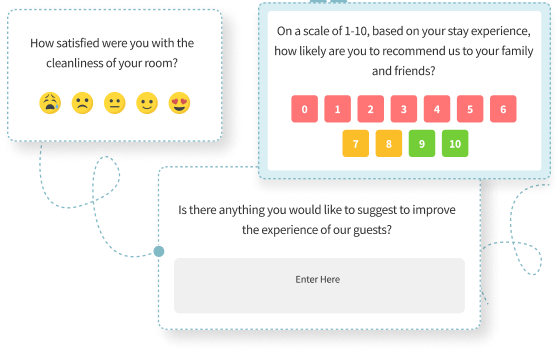
Online surveys have become an increasingly popular tool for businesses, organizations, and individuals to gather valuable insights and feedback from their target audience. By leveraging the power of the internet, online surveys offer a convenient and efficient way to collect data, gain a deeper understanding of customer preferences, and make informed decisions.
Benefits of Using Online Surveys
Online surveys provide a range of benefits that make them a compelling choice for data collection:
Reach and Accessibility: Online surveys can reach a wide and diverse audience, allowing you to gather responses from participants across different geographic locations and demographics.
Cost-Effectiveness: Compared to traditional paper-based surveys, online surveys are generally more cost-effective, as they eliminate the need for printing, mailing, and manual data entry.
Real-Time Data Collection: Online surveys enable you to collect responses in real-time, providing you with immediate access to the data and allowing for faster analysis and decision-making.
Improved Data Quality: Online surveys can incorporate features like skip logic, required fields, and validation checks, which help ensure the accuracy and completeness of the collected data.
Enhanced Analytics: Many online survey platforms offer advanced analytics and reporting capabilities, allowing you to generate detailed insights and visualizations from the survey responses.
Choosing the Right Online Survey Platform
When it comes to creating an online survey, selecting the right platform is crucial. Here are some key factors to consider:
Evaluating Platform Features
Look for an online survey platform that offers a comprehensive set of features to meet your specific needs. This may include question types, survey logic, customization options, and integration capabilities with other tools and software.
Considering Pricing and Subscription Models
Evaluate the pricing and subscription models of different online survey platforms to find the one that best fits your budget and survey requirements. Some platforms offer free plans with limited features, while others have tiered pricing based on the number of responses or advanced functionalities.
Ensuring Data Security and Privacy
Data security and privacy should be a top priority when choosing an online survey platform. Ensure that the platform you select has robust security measures in place to protect the confidentiality of your survey responses and participant information.
Designing an Effective Online Survey
Creating an effective online survey requires careful planning and attention to various design elements. Here are some key considerations:
Defining Your Survey Objectives
Clearly define the objectives of your online survey, such as gathering customer feedback, understanding user preferences, or evaluating the effectiveness of a product or service. This will help you determine the type of questions to include and the overall structure of the survey.
Crafting Clear and Concise Questions
Ensure that your survey questions are clear, concise, and easy to understand. Avoid ambiguous or leading questions, and consider using a mix of question types, such as multiple-choice, rating scales, and open-ended questions, to gather comprehensive feedback.
Structuring the Survey Flow
Organize your survey in a logical and intuitive manner, with a clear beginning, middle, and end. Consider using survey logic to guide respondents through the survey based on their previous answers, and provide clear instructions and progress indicators to enhance the user experience.
Optimizing for Mobile Responsiveness
With the increasing prevalence of mobile devices, it’s essential to ensure that your online survey is optimized for mobile responsiveness. This includes designing a mobile-friendly layout, adjusting question formats, and ensuring that the survey is easy to navigate on smaller screens.
Promoting and Distributing Your Online Survey
Effective promotion and distribution of your online survey are crucial for maximizing participation and gathering meaningful data. Here are some strategies to consider:
Leveraging Email and Social Media
Utilize email and social media platforms to promote your online survey and encourage participation. Craft engaging email subject lines and social media posts that highlight the value of the survey and the potential benefits for respondents.
Embedding Surveys on Your Website
Integrate your online survey directly into your website, making it easily accessible to your existing audience. This can help increase survey visibility and encourage participation from your website visitors.
Utilizing Targeted Advertising
Consider using targeted advertising on platforms like social media or search engines to reach specific demographics or audience segments that align with your survey objectives. This can help you expand your reach and gather responses from a more diverse pool of participants.
You Must Know
The Future of Online Surveys: 10 Predictions to Shape Your Strategy
Ensure Accurate Results: Top Strategies for Data Quality in Online Surveys
Analyzing and Interpreting Survey Results
Once you have collected the survey responses, the next step is to analyze and interpret the data to extract meaningful insights. Here are some key considerations:
Generating Insightful Reports
Utilize the reporting and analytics features of your online survey platform to generate comprehensive reports that summarize the survey results. These reports should include visualizations, such as charts and graphs, to help you identify trends and patterns in the data.
Identifying Trends and Patterns
Carefully analyze the survey responses to identify any significant trends or patterns that emerge. Look for common themes, recurring feedback, and areas of particular interest or concern to your target audience.
Translating Findings into Action
Use the insights gained from the survey results to inform your decision-making and take concrete actions. This may involve adjusting your products or services, refining your marketing strategies, or addressing specific pain points identified by your survey respondents.
Conclusion
Creating an effective online survey is a powerful way to gather valuable insights and make informed decisions for your business or organization. By understanding the benefits of online surveys, choosing the right platform, designing a well-structured survey, promoting it effectively, and analyzing the results, you can unlock a wealth of data-driven insights to drive your success.
FAQs
What are the key features to look for in an online survey platform?
- Customizable question types
- Survey logic and branching
- Real-time response tracking
- Advanced reporting and analytics
- Mobile-responsive design
How can I ensure a high response rate for my online survey?
- Offer incentives or rewards for completing the survey
- Promote the survey through multiple channels (email, social media, website)
- Keep the survey concise and easy to complete
- Clearly communicate the purpose and value of the survey
What are some best practices for designing effective survey questions?
- Use clear and unambiguous language
- Avoid leading or biased questions
- Offer a range of response options (multiple-choice, rating scales, open-ended)
- Test the survey with a small sample group before launching
How can I analyze and interpret the survey results effectively?
- Generate comprehensive reports with visualizations (charts, graphs)
- Identify trends, patterns, and areas of interest or concern
- Segment the data by demographic or other relevant factors
- Translate the findings into actionable insights and strategies
What are the key considerations for ensuring data privacy and security in online surveys?
- Choose a survey platform with robust security measures
- Obtain informed consent from participants
- Anonymize or de-identify survey responses
- Comply with relevant data protection regulations




